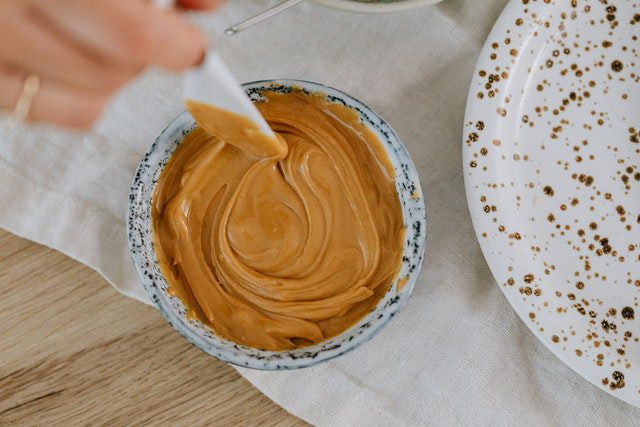Peanut butter is an essential part of school lunches as well as afternoon snacks. But there are many peanut butters that is made to be the same. Some brands incorporate sugar, vegetable oil and trans fats into what is typically simply a protein-rich snack. Consuming too much sugar and trans fats is linked to heart disease as well as other health issues. If you’re searching for the most healthy alternative, choose one you can find in a health food store that contains only peanuts, and possibly salt as the main ingredients.
The peanut butter variety is an absolute must-have in the majority of American kitchens. If it’s in traditional PB&J recipes or used as a garnish on celery and apple slices peanut butter is regarded as the most-loved nut across the U.S. But is it really the best for you? Many people are unaware that there is a variety of nut butter made of different varieties of nuts. The health benefits of peanut butter simply don’t compare to the nutritious ingredients in other nuts.
Understanding Peanut Allergies: Causes, Symptoms, and Management
What are the reasons to choose peanut butter instead of other brands?
Peanut butter is an excellent, nutritious snack and is a fantastic method to get a full portion of protein and nutritious monounsaturated fats. But the majority of store-bought versions contain a variety of ingredients, such as salt, sugars and hydrogenated oils. This reduces the nutritional value when compared to other options.
Nut butter made of cashews, almonds, macadamia nuts, walnuts, and other varieties of nuts usually contains lower amounts of added ingredients, making them an excellent option to enjoy the health benefits nuts can provide without the addition of sugar and other ingredients. These delicious spreads are loaded with healthy nutrients, but the most important to maximizing their potential is to use minimal ingredients. The brands that make butter of the most basic ingredient nut that contains no added ingredients are top of the line. The nut butter with the best taste can be made at yourself by grinding your favorite variety in the food processor to the point that it is an emulsified spread.
Another reason why people choose nuts other in comparison to peanut butter can be due to the increasing number of people suffering from peanut allergies. Based on the American Academy of Asthma, Allergy and Immunology The peanut is the leading allergen in children of school age. While some individuals may be sensitive to all types of nuts and must stay clear of nut butter in general However, many children can eat everything apart from peanut butter. It is because peanuts belong to part of the legume family and aren’t technically nuts. But, it is recommended to talk with your physician before exploring other nut butter when you have an allergy to peanuts since it might be better to go with products that do not contain nuts.
In addition, if allergies come into play or you’re trying to make a change you might want to consider trying different options. We have got you covered with a selection of delicious spreads that rival peanut butter on a nutrition front, as well as in tasting tests.
Almond Butter
Almond butter offers a similar nutritional value as peanut butter however peanut butter is a bit more nutritious, as it contains more protein. But, because almond butter contains more minerals, vitamins as well as fiber, it’s thought to be healthier. In general almond butter is healthier than other nuts because almonds are less saturated as compared to other nuts. In addition, they’re rich in monounsaturated fats which are linked to less heart disease and improved blood sugar control.
Sunflower Seed Butter
If you suffer from allergies to tree nuts sunflower seeds are a good alternative. However, even it’s not however, the sweet, bright taste could convince you. In terms of health, the sunflower seed butter contains higher levels of unsaturated fat as well as magnesium as well as vitamin E, than peanut butter, as well as less saturated fat and sugar than many peanut butter brands.
Pecan Butter
Pecan butter is a rich source of 19 different minerals and vitamins that include high concentrations of manganese and thiamin and copper. Additionally, it contains a significant amount of fiber. Additionally, pecans are the most antioxidant nut with 400% of the antioxidants found in almonds and 566 per cent of what’s contained in peanuts. Pecan butter, however, contains more calories and fats than other options listed on this list, and it’s recommended to avoid eating it every day.
Tahini
A spread that is made of ground and toasted sesame seeds Tahini could be an unusual choice as an alternative to peanut butter, but we’re not going to let you down! Tahini has been considered a nut butter substitute before because of its flavor, but it’s more bitter. In terms of nutrition, it is low in calories and is high in protein and fiber. Tahini can also be a great source of manganese and phosphorus as both are essential to bone health.
Cashew Butter
Cashew butter, just like peanut butter, is packed with lots of healthy fats. It’s a more nutritious monounsaturated fat than peanut butter however, it is also rich in magnesium, iron Vitamin B6, vitamin B6 and calcium. It’s important to know that cashew butter is made of either baked or raw cashews. The raw kind is more effective at preserving the nutritional value therefore keep this in mind while shopping.
Walnut Butter
Walnut butter is the one with the highest omega-3 fatty acids out of all nut butter making it a fantastic option for lowering cholesterol levels and reducing inflammation. Walnut butter is similar to pecan butter and is rich in antioxidants. However, walnut butter is less in fiber and protein than other alternatives and is high in fat, which means it’s not the best choice overall.
Conclusion
Peanut butter is an incredibly useful ingredient that is used in many recipes that are sweet and salty. But, there are occasions when you have to switch it out for another ingredient.
There are plenty of nutritious substitutes to select from that will satisfy your needs while tasting great.
References
- Imamura, F., Micha, R., Wu, J. H., de Oliveira Otto, M. C., Otite, F. O., Abioye, A. I., & Mozaffarian, D. (2016). Effects of Saturated Fat, Polyunsaturated Fat, Monounsaturated Fat, and Carbohydrate on Glucose-Insulin Homeostasis: A Systematic Review and Meta-analysis of Randomised Controlled Feeding Trials. PLoS Med, 13(7), e1002087.
- Le, T., Flatt, S. W., Natarajan, L., Pakiz, B., Quintana, E. L., Heath, D. D., … & Rock, C. L. (2016). Effects of Diet Composition and Insulin Resistance Status on Plasma Lipid Levels in a Weight Loss Intervention in Women. Journal of the American Heart Association, 5(1), e002771.
More Peanut Allergy Articles
Peanut allergy articles cover a wide range of subjects, from understanding the causes and symptoms of peanut allergies to discussing the latest advancements in diagnosis and treatment. These articles are essential resources for those looking to manage peanut allergies, create safe environments, and lead a healthy life.
- Peanut Allergy in Babies: Understanding the Causes and Prevention Strategies
- Unveiling the Truth: Five Guys’ Use of Peanut Oil Explained
- Unlocking the Truth: Can You Enlist in the Military with a Peanut Allergy?
- Can You Safely Enjoy Chick-fil-A with a Peanut Allergy? Get Answers and Tips Here!
- Discover the Best Ways to Test for Peanut Allergy at Home: Tips and Tricks
- Peanut Allergy: Understanding the Triggers and Symptoms
- Top 5 Premium Organic Walnut Products for Healthy Snacking
- Discover Delicious Vegan and Nut-Free Snacks for Kids – Perfect for School Lunches!
- Discover the Best Peanut-Free Brownie Mixes: A Comprehensive Guide
- Peanut-Free Chips: The Ultimate Guide to Allergy-Friendly Snacking | Top Brands Revealed!
- Shop the Best Peanut-Free Cookies – 7 Delicious Options to Satisfy Your Sweet Tooth Online!
- Discover the Best Peanut-Free Protein Bars for a Healthy and Allergy-Friendly Snack
- Peanut-Free Cashews and Cashew Butter: Your Ultimate Guide for Nutty Alternatives
- Uncovering The Truth: Does Bojangles Use Peanut Oil? All You Need To Know!
- Savor the Crunch: A Guide to Peanut-Free Bread for Peanut Lovers!
- Can You Eat Popcorn if You Have a Nut Allergy?
- What is a Healthier Snack, Nuts or Popcorn?
- Peanut Free Easter Candy and Chocolates From Peanut Free Facilities
- Peanut Free Oils
- Is Bojangles Peanut Allergy Free?
- Peanut-Free Bird Seed Guide: A Must-Read for Allergy-Conscious Parents
- Discover the Top 5 Peanut-Free Walnut Brands for a Safe and Delicious Snack!
- Peanut-Free Snacks That Are Fun And Tasty
- Discover 11 Top Almond and Almond Butter Brands Free of Peanuts
- Discover Top Peanut-Free Chip Brands & Shop Online: The Ultimate Guide
- The Ultimate Guide to Peanut-Free Chips: 11 Safe and Delicious Brands
- Discover the Top 15 Peanut-Free Oils & 3 Brands with Certified Peanut-Free Facilities!
- Know About Alternatives to Peanut Butter
- Protect Yourself with a Peanut Allergy Medical ID Bracelet – Essential Safety Gear
- Know Different Types of Allergy Doctors





